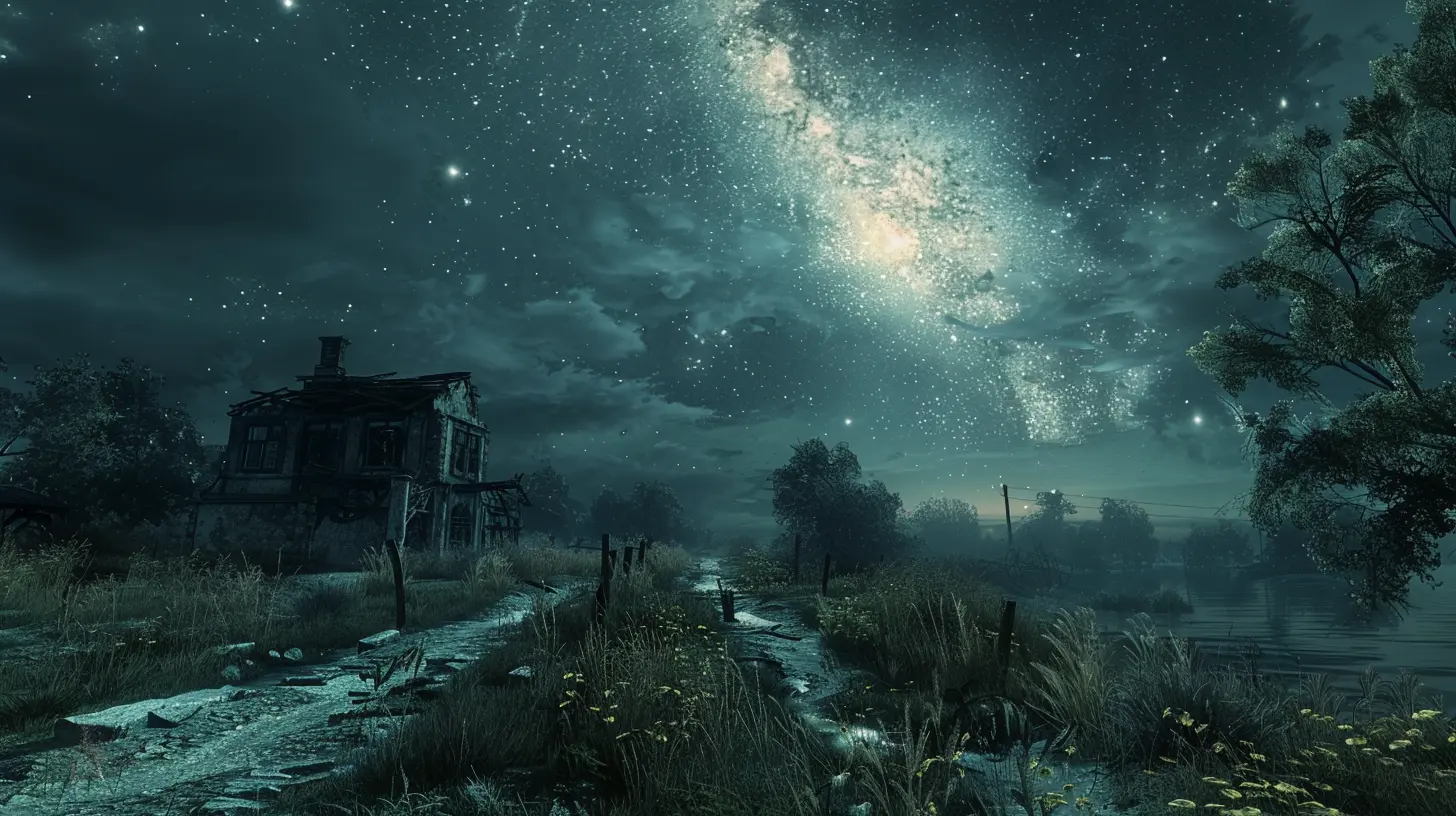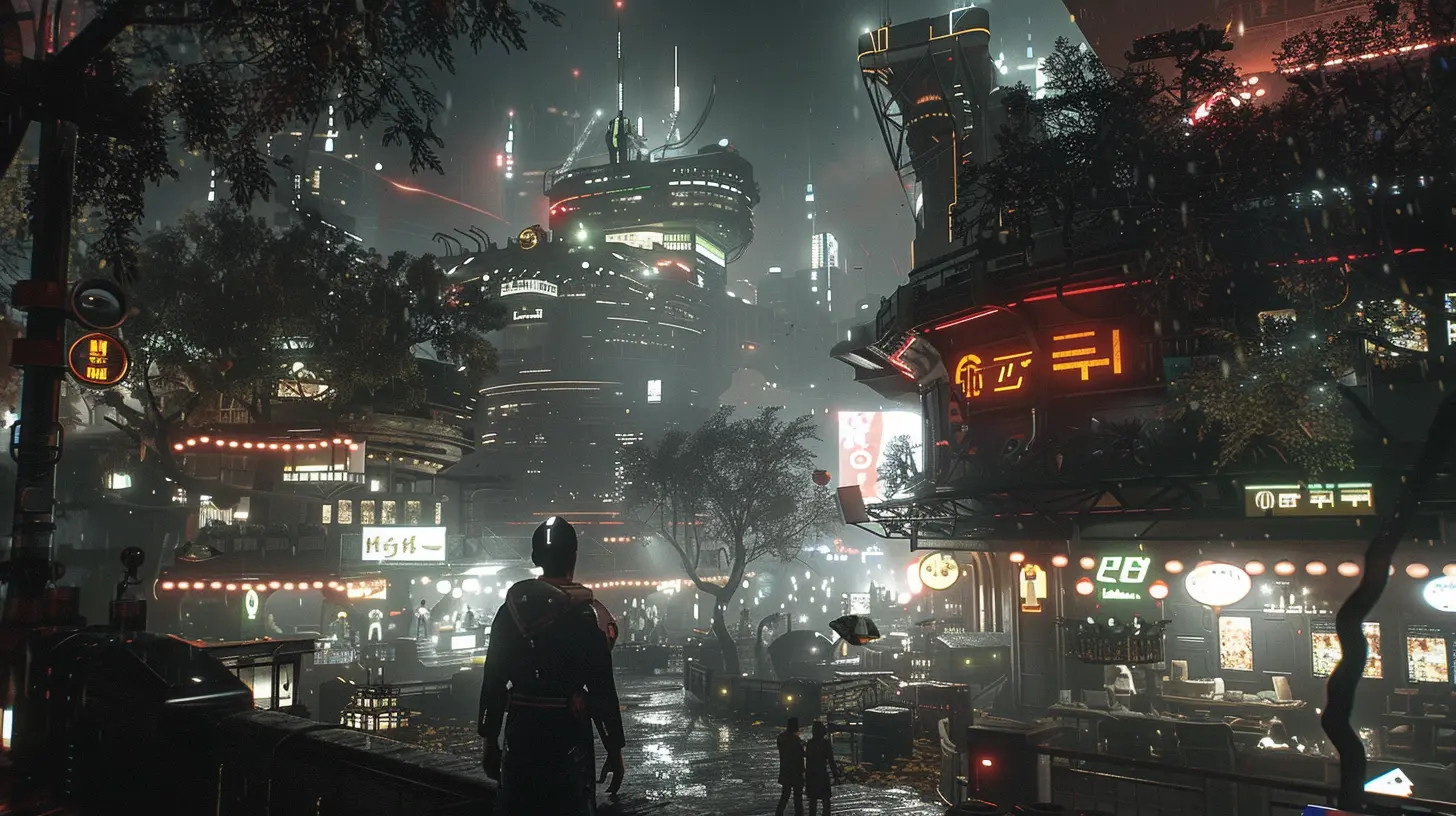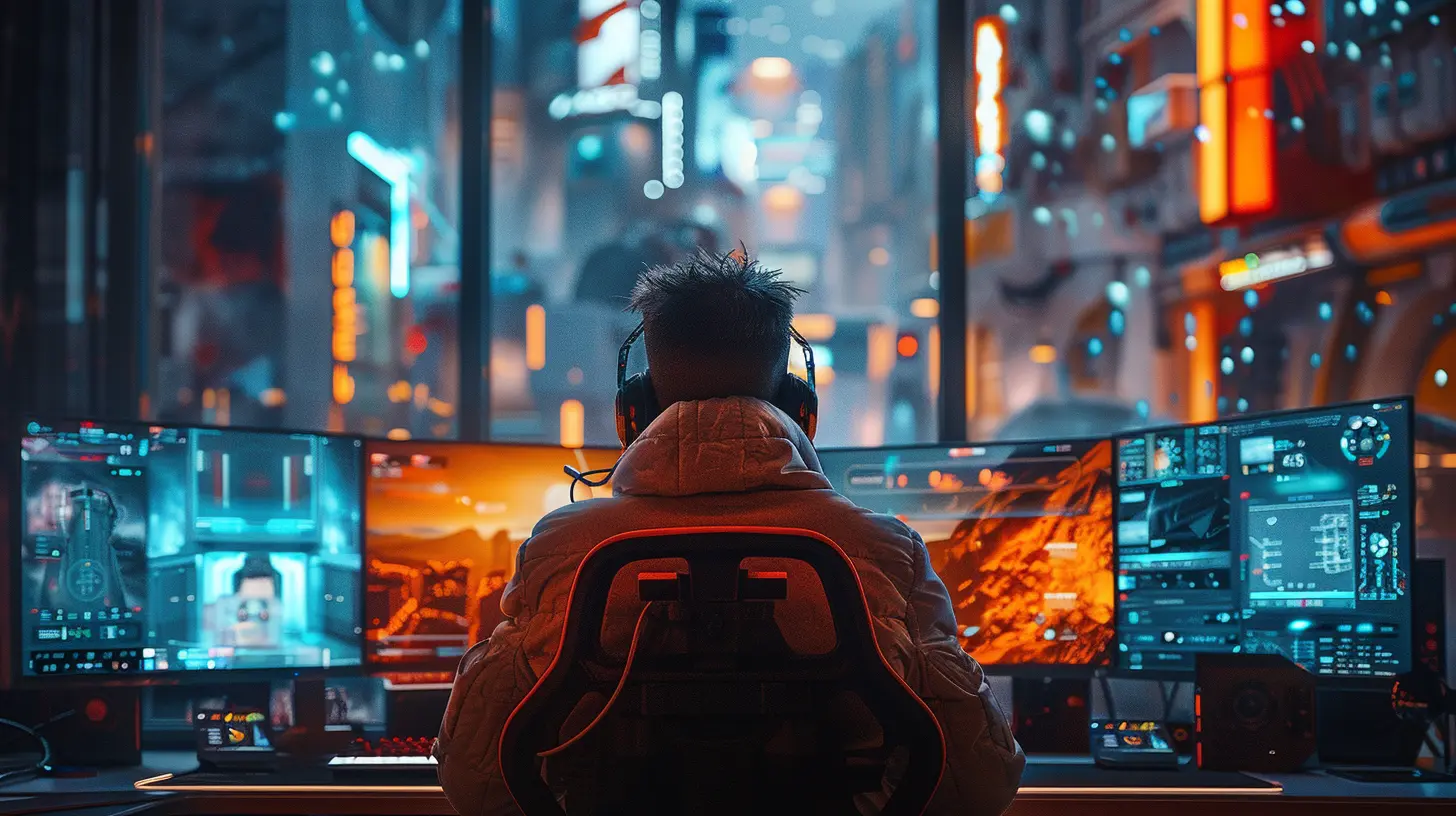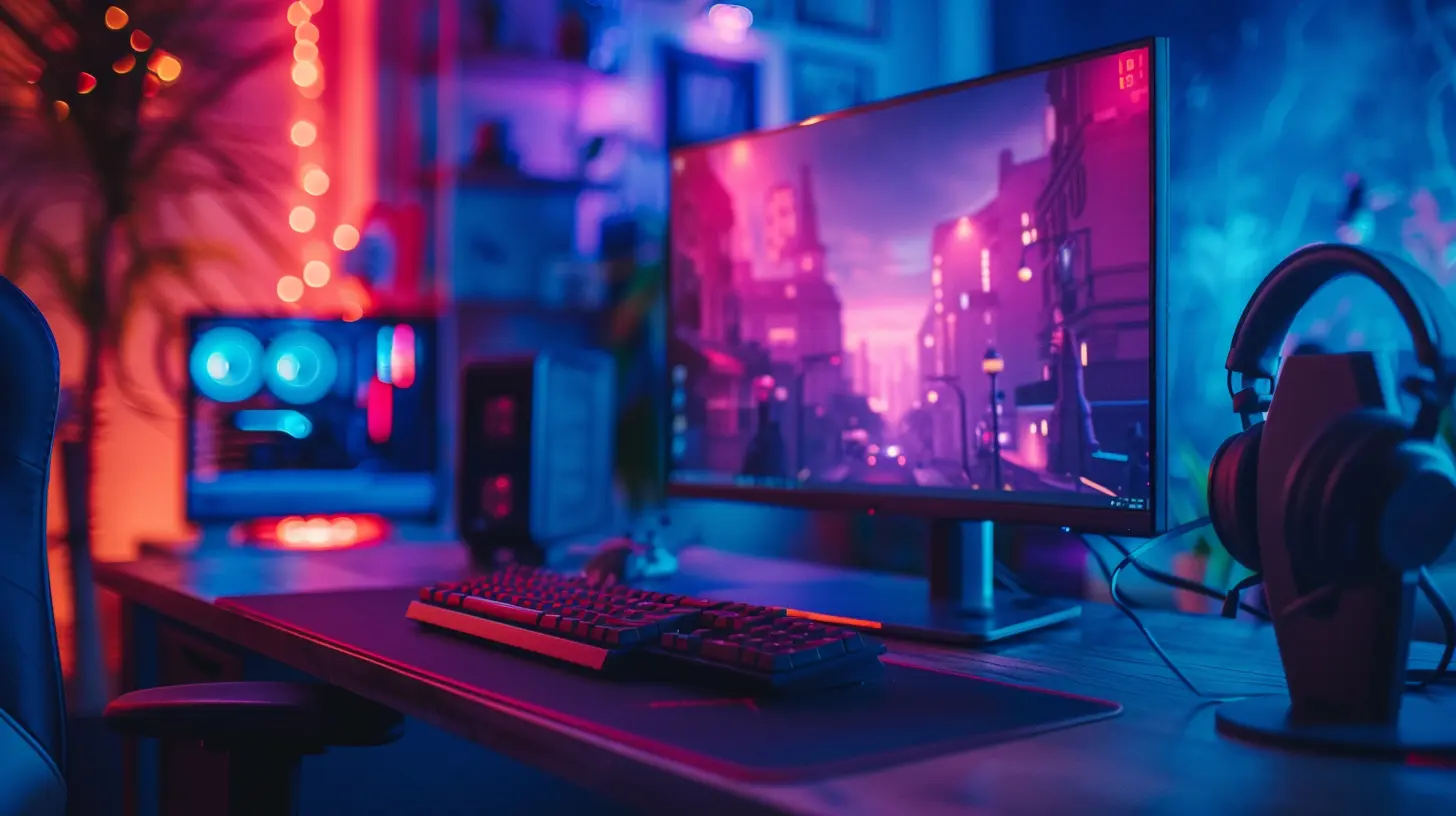Why Mods Are the Future of PC Gaming
24 October 2025
What makes PC gaming so special? Sure, the powerful hardware, massive game libraries, and jaw-dropping graphics are impressive, but there’s one thing that truly sets it apart from console gaming: mods. If you’ve spent any time in the PC gaming world, you’ve probably encountered a mod or two—those user-created tweaks that can completely overhaul a game. Mods range from simple cosmetic changes, like putting a funny hat on your character, to transformative experiences that turn entire games into something entirely new.
But we’re not just here to talk about why mods are cool. No, we’re going deeper than that. Mods aren’t just a quirky side feature of PC gaming—they’re shaping the future of the medium itself. Let’s dive headfirst into why mods are such a big deal and why they’re not going away anytime soon. In fact, they might just change everything.

What Are Mods, Anyway?
If you’re new to the gaming scene, let me break it down for you. A “mod,” short for modification, is essentially user-generated content that changes some aspect of a video game. Mods are created by players, not the original developers. Think of them as the DIY projects of the gaming world. Sometimes they’re small, like replacing a game’s soundtrack with your favorite songs. Other times, they’re downright revolutionary, creating entirely new game worlds, mechanics, and even stories.Remember The Elder Scrolls V: Skyrim? This legendary RPG has been kept alive for over a decade thanks to its modding community. Or how about Counter-Strike? Yep, that started as a humble mod for Half-Life before becoming one of the most iconic franchises in gaming. Mods can elevate games beyond their original scope, and that’s part of their magic.

The Creative Freedom of Modding
Mods are the ultimate sandbox for creative minds. Think about it—if you’ve ever played a game and thought, “This would be cooler if…,” mods are your way to make that “what if” a reality. Modding gives players a chance to become creators, shaping games to fit their wildest imaginations.Ever wanted to hunt dragons in Minecraft or play as Iron Man in Grand Theft Auto V? Done and done—thanks to mods. It’s like going to a pizza place and being told you can put literally anything on your pizza. Pineapple? Sure. Chocolate chips? Why not. Mods let players customize their gaming experience to an insane degree, and that kind of creative freedom is something you just won’t find on consoles.
But it’s not just about personalizing your experience. Modding fosters innovation. Some of the greatest ideas in gaming didn’t come from AAA studios—they came from modders experimenting in their bedrooms. For example, the wildly popular Auto Chess genre spun out of a mod for Dota 2, and PUBG—yes, the game that popularized battle royales—was originally a mod for Arma 2. Mods are the breeding ground for gaming’s next big ideas.

Why Mods Are Perfect for PC Gaming
You might be wondering, “Why is modding so huge for PCs but not as much for consoles?” Well, it boils down to openness. PCs are like the Swiss Army knives of gaming platforms. Unlike consoles, which are locked down with protective walled gardens, PCs are as customizable as the games they run. You can tinker with hardware, tweak settings, and yes, install mods without jumping through corporate hoops.PC gaming also has platforms like Nexus Mods and the Steam Workshop that actively support and celebrate the modding community. These hubs make it super easy for players to find, download, and install mods for their favorite games. Plus, let’s be real—PC gamers love to push boundaries, whether it’s overclocking their GPUs or turning The Witcher 3 into a first-person shooter. That adventurous spirit aligns perfectly with the culture of modding.

The Community Aspect: A Shared Playground
Mods aren’t just about the individual—they’re about the community. Have you ever scrolled through a modding forum? It’s like wandering into a bustling bazaar of creativity. Modding communities are filled with passionate gamers who share ideas, troubleshoot problems, and collaborate on massive projects.Take the Skyrim modding scene, for example. Thousands of talented creators have put their spin on the game, from high-resolution texture packs to entirely new questlines. The result? A game that feels endlessly fresh and alive, even years after its release.
And it’s not just about downloading mods—it’s about contributing. Whether you’re coding, designing textures, or even just beta-testing, modding communities give everyone a chance to be involved. It’s gaming’s version of an open-source project, where the only limit is your imagination (and maybe your coding skills).
Mods Drive Game Longevity
Here’s a question: how many games can you name that are still popular years—or even decades—after their release? Not many, right? Now, let’s add mods into the mix. The list suddenly gets a lot longer. Games like Civilization V, Fallout: New Vegas, and The Sims 4 have enjoyed unimaginable lifespans thanks to their modding communities.Mods breathe new life into games, extending their replayability far beyond what the original developers intended. Take Grand Theft Auto V, for instance. Sure, the base game is a masterpiece, but mods like FiveM (a popular multiplayer mod) have given the game an entirely new lease on life. Players regularly roleplay as police officers, criminals, or even business owners in bustling online communities. Without mods, those experiences simply wouldn’t exist.
From a developer’s perspective, this extended longevity is a goldmine. The longer a game stays relevant, the more likely players are to recommend it to friends—or buy DLC and expansions. Mods keep games in the cultural conversation, and that’s something every studio should want.
The Economic Side of Modding
Believe it or not, mods also make financial sense. Sure, modding is predominantly a hobbyist pursuit, but there’s a growing market for premium mods. Some studios have started creating marketplaces where modders can sell high-quality content. Bethesda’s Creation Club is a prime example. While not without controversy, it’s shown that people are willing to pay for mods if they add enough value to their favorite games.And let’s not forget the modders who’ve turned their passion into careers. Many developers got their start in the modding community before joining professional studios. Employers see modding as proof that you have both technical skills and a deep love for gaming—a winning combo.
Mods vs. Microtransactions: A Battle for the Soul of Gaming?
Let’s address the elephant in the room: microtransactions. Love ‘em or hate ‘em, they’ve become a dominant force in modern gaming. But mods offer an alternative—a way for players to get more content without pulling out their wallets. In a world where some developers charge $10 for a new skin, mods feel like a refreshing throwback to the days when unlocking cool stuff didn’t cost a dime.Of course, the rise of paid mod marketplaces complicates this a bit. Are mods in danger of becoming just another form of DLC? Maybe. But as long as free, community-driven mods remain at the heart of PC gaming, they’ll continue to be a counterweight to the increasingly monetized world of gaming.
The Challenges Mods Face
It’s not all sunshine and rainbows, though. Modding does have its challenges. For one, not every developer is mod-friendly. Some studios lock down their games so tightly that modding becomes nearly impossible (looking at you, Rockstar Games). And then there’s the legal gray area of copyrighted content. Mods that use external IPs—like adding Spider-Man to Skyrim—run the risk of being shut down.Technical barriers can also be a problem. Modding requires a certain level of tech-savviness, which can be intimidating for newcomers. Plus, mods can occasionally break your game or cause performance issues if not installed correctly. So while mods are amazing, they’re not without their hiccups.
The Future of Mods in PC Gaming
So, where do we go from here? If the past few years are anything to go by, mods are only going to become more influential. We’re seeing more developers embrace modding, offering official tools to make the process easier. Take Cyberpunk 2077, for example—CD Projekt Red recently launched modding support to let players customize Night City to their hearts’ content.Emerging technologies like AI and procedural generation are also opening new doors for mods. Imagine AI-driven mods that create dynamic quests tailored to your playstyle, or mods that use machine learning to upscale a game’s graphics in real-time. The possibilities are mind-boggling.
In the grand scheme of things, mods represent the very best of PC gaming: freedom, creativity, community, and innovation. They’re more than just a niche hobby—they’re the future.
all images in this post were generated using AI tools
Category:
ModsAuthor:

Kaitlyn Pace
Discussion
rate this article
1 comments
Catherine Henderson
Mods: Endless gaming joy!
November 6, 2025 at 3:19 AM

Kaitlyn Pace
Thank you! Mods truly enhance the gaming experience and keep it fresh and exciting for players.


